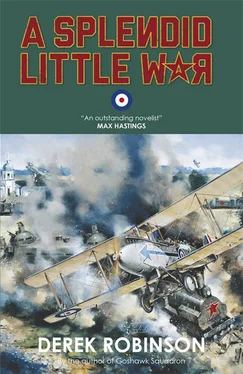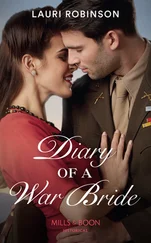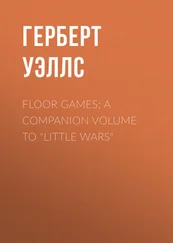“Not a gentleman,” Lacey said firmly.
“Explain.”
“No restraint. Greedy. Like a child in a sweetshop, wanting everything. Alexander the Great was another. Also our late C.O., Griffin.”
“Before my time,” Susan Perry said. “I caught the funeral.”
“He never really approved of me,” Borodin said. “I was a bloody foreigner.”
“We shouldn’t blame him,” Lacey said. “It’s all a matter of breeding. In his case, somewhat lacking.”
“Ah-ah,” she said. “The precious bloodline. How do you fit in, Lacey?”
“Comfortably. The Laceys go back many centuries.”
“So do I. So do we all.”
Borodin said. “Last time I looked, my lot went back fifty thousand years.”
“That’s not breeding,” Lacey said. “That’s reproduction.”
“Lacey’s a snob,” she said.
He gave her a crooked smile. “If I made the effort, I could be a clod, like most people,” he said. “But then, you wouldn’t get soft toilet paper, would you? Speaking of which, I had another signal from Mission H.Q. Their information is that Denikin has three squadrons of crack fliers helping his advance. All based on the aerodrome at Belgorod. Just a few miles from here.”
“What does Denikin say?”
“I can’t raise his H.Q. Perhaps they’re on the move. Perhaps they’re too busy fighting.”
“I tried tapping the telegraph line but it’s dead,” Borodin said. “Which makes me wonder: if we can’t talk to Denikin’s staff, where did the British Mission H.Q. get its information about three squadrons of crack fliers?”
“From Denikin’s Chief of Aviation. Colonel Subasnov was on a visit to Taganrog. Mission H.Q. said he was very helpful.”
A croquet ball bounced off a wheel of the car. Wragge strolled over, swinging his mallet at the larger wildflowers. “Who’s winning?” the doctor asked. He kicked his ball into a better position. “Not us. I think Tusker’s team are cheating.” He took a mighty whack and the ball hit one of the Cossack ponies, which had been let out to feed. It shied, and then tried to eat the ball. “I think I scored a double bogey,” Wragge said. “Maybe a triple. This pitch is a disgrace.” He walked away. “Somebody shoot that animal before it ruins the game,” he shouted.
6
In the cool of the morning, Dextry coached Borodin on the many ways his Camel could kill him.
They stood beside the fighter. A mechanic waited, his hands on the prop.
“Examine the beast,” Dextry said. “All the heavy stuff, the engine, the guns, the fuel, the pilot, are grouped close together at the front. That’s why it’s called a Camel — the business end has a hump. Sopwiths can do this because the Le Rhône is a rotary engine, very compact. In a rotary the cylinders whizz round and round and take the prop with them.”
“Air-cooled,” Borodin said. “Nice idea.”
“Yes. But it has to spin at a hell of a lick in order to fly. If Charlie there were strong enough to hold the prop still so it can’t move, then your rotary would try to spin the whole aeroplane.”
“Torque.”
“And torque will try to kill you as soon as you take off. The starboard wing will drop and so will the nose. Correct immediately , give a hint more stick, maybe some throttle. If that wingtip touches you’ll cartwheel and Charlie will sweep up the bits and put them in a sack.”
Borodin glanced at Charlie. “That’s correct, sir,” Charlie said. “Every little scrap.”
“Now you’re up and you’ve mastered the torque, the engine has another attempt at murder,” Dextry said. “Sudden loss of power.”
“I practised that yesterday. On the ground, of course. It’s the fine-adjustment, isn’t it? Nursing the needle.”
“Be ready. Expect to lose power. Just tickle it. A rotary is a woman, it responds to a caress. Grab it and you’ll choke it and it’ll die and so will you. Which would be a waste, because in combat the Camel is the best there is. A wonderful killer of others. Alright, get in.”
Borodin made himself comfortable, feet on the rudder pedals, stick between legs, and fastened the belt.
“Here’s the final way she’ll kill you,” Dextry said. “She can manoeuvre like magic. When in doubt, chuck everything into a right-hand bank and nobody can follow you. You’ll turn so tightly it looks like you’ve gone through a revolving door. But …” He prodded Borodin’s shoulder. “It’s that bloody torque again. It drags the nose down and before you know it…” He clicked his fingers. “… your Camel’s in a power dive. Under a thousand feet, you’ll probably make a hole in the ground. The answer is—”
“Opposing rudder,” Borodin said.
“Lots of it, and quick. Don’t wait for trouble. Anticipate. Did they tell you about the button on the joystick?”
“Yes. For blipping the engine. Switching it on and off to get the speed right on landing.”
“Learn the art. You have a fine aristocratic nose. Make a crash landing and you’ll bash your nose against those gun-butts and spend the rest of your life, if you live, with what we call ‘Camel Face’. Not pretty. Are you ready to taxi? That’s what you’re going to do now. Simply taxi up and down the field a dozen times. Learn the basics.”
Dextry walked away. He sat on the grass and watched Borodin go through the starting routine with Charlie. The engine roared, belched a smell of castor oil, idled, roared again, settled down to a steady note. The chocks were removed. Borodin taxied away. Within fifty yards his tail was up. Within a hundred, he was flying.
Fifteen minutes later, the C.O. came out and joined the flight leader. They watched the Camel make its approach, shedding height as it blipped its engine, until it seemed to flare its wings, nose up, while the wheels felt for the ground, made the smallest bump, and ran.
“I told the idiot to taxi,” Dextry said. “Learn how to walk before he runs.”
“Chew him out, if you like,” Wragge said. “He’s a natural. He joins the Flight.”
Dextry walked to the Camel as Borodin was climbing down. “Nice machine,” Borodin said. “She wished to fly, so I went along for the ride.”
“Understand this,” Dextry said. “That’s the last order you disobey. Briefing in half an hour.” He walked away. Charlie was waiting. “Arm and refuel, Charlie,” he told him.
“He seems a nice gentleman, sir.”
“Lovely manners,” Dextry said. “But can he kill?”
*
Briefing took less than a minute. The Camels would climb to ten thousand. Form a very loose arrowhead. Count Borodin is in the Flight. We take a look at Belgorod, see what’s happening. H.Q. says the Whites have three squadrons based there. Do they know we’ve arrived? Maybe not. Stay awake. Questions? No? Good.
The Camels were labouring at eight thousand feet, and toiling after another five hundred, so Wragge cut his losses and levelled out. He was gasping for breath, he had sparks before his eyes. Maybe the air was unusually thin today. Anyway, even a new Camel couldn’t fight worth a damn much above ten thousand. Huns just ran away from it. And these were not new Camels.
Belgorod was in sight — little more than a small market town, not big enough to be fortified; probably owed its existence to the railway — when Wragge noticed a glitter down there. To get a better view he eased the Flight into a glide, but the glitter vanished. Then it returned. Sunlight off water. He tried to trace the river, but it wandered and he lost it. Then his eye caught another flicker of light, nowhere near the river, and he squinted hard and saw yesterday’s Halberstadt two-seater. Sun on its windscreen, probably. The machine was as tiny as a moth, almost camouflaged against the soft green countryside.
Читать дальше











